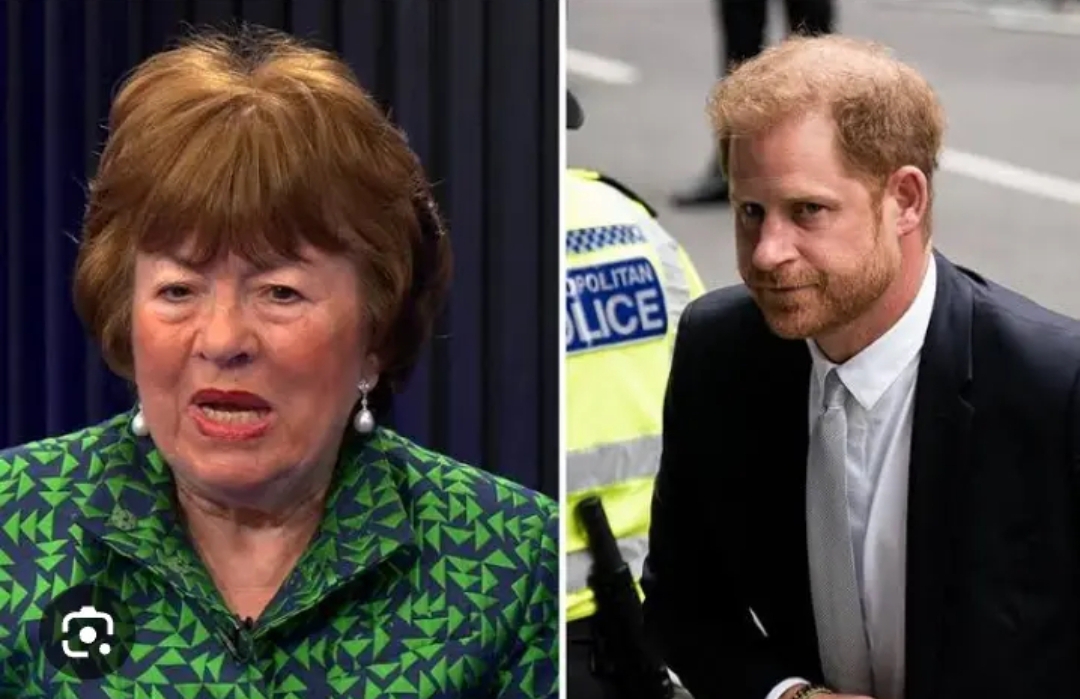
Renowned royal biographer Angela Levin has raised concerns about Prince Harry’s position in the line of succession to the British throne. Levin suggests that the British monarchy faces a “terrible problem” as Prince Harry remains fifth in line, and she outlines her worries about the potential implications for the monarchy.

Prince Harry currently holds the fifth position in the line of succession, following his father, Prince Charles, his brother, Prince William, and his nephews, Prince George and Prince Louis. Despite stepping back from his senior royal duties and relocating to the United States, Prince Harry’s status within the line of succession remains unchanged.
Angela Levin, known for her insightful commentary on the British royal family, has expressed her concerns about the implications of Prince Harry’s position in the line of succession. In her assessment, Levin suggests that the monarchy faces a “terrible problem” with Prince Harry maintaining his position despite the significant changes in his life and role within the royal family.
According to a report by Gbnews, Levin points to the unique circumstances surrounding Prince Harry’s decision to step back from his senior royal duties and move to the United States with his wife, Meghan Markle. The couple’s departure from the UK and their pursuit of a more private and independent life have led to questions about Prince Harry’s continued inclusion in the line of succession.
The concerns raised by Levin reflect broader discussions about the relevance and adaptability of the monarchy in contemporary times. As the British royal family navigates a new era, marked by changing societal expectations and individual choices made by its members, questions arise about the traditional principles governing the line of succession.
While the British monarchy has a long history of continuity and adherence to established norms, the evolving nature of the institution requires careful consideration of its traditions. Prince Harry’s position as fifth in line to the throne has become a focal point for those examining the monarchy’s ability to adapt to the changing dynamics within the royal family.
Levin’s worries about the monarchy’s “terrible problem” highlight the delicate balance between tradition and the need for flexibility in response to modern challenges. The concerns raised suggest that Prince Harry’s continued presence in the line of succession may pose challenges to the monarchy’s ability to project a unified and forward-looking image.
It is essential to note that discussions around the line of succession are complex and involve legal, historical, and constitutional considerations. The British monarchy operates under established rules and regulations, and any potential changes to the line of succession would require careful examination and consideration by relevant authorities.
As Prince Harry continues to forge his path outside the traditional confines of senior royal duties, the discussion about his position in the line of succession reflects the broader debate about the monarchy’s role in the 21st century. The concerns raised by Angela Levin underscore the need for ongoing reflection and adaptation within the royal family to address the complexities of the modern era.




